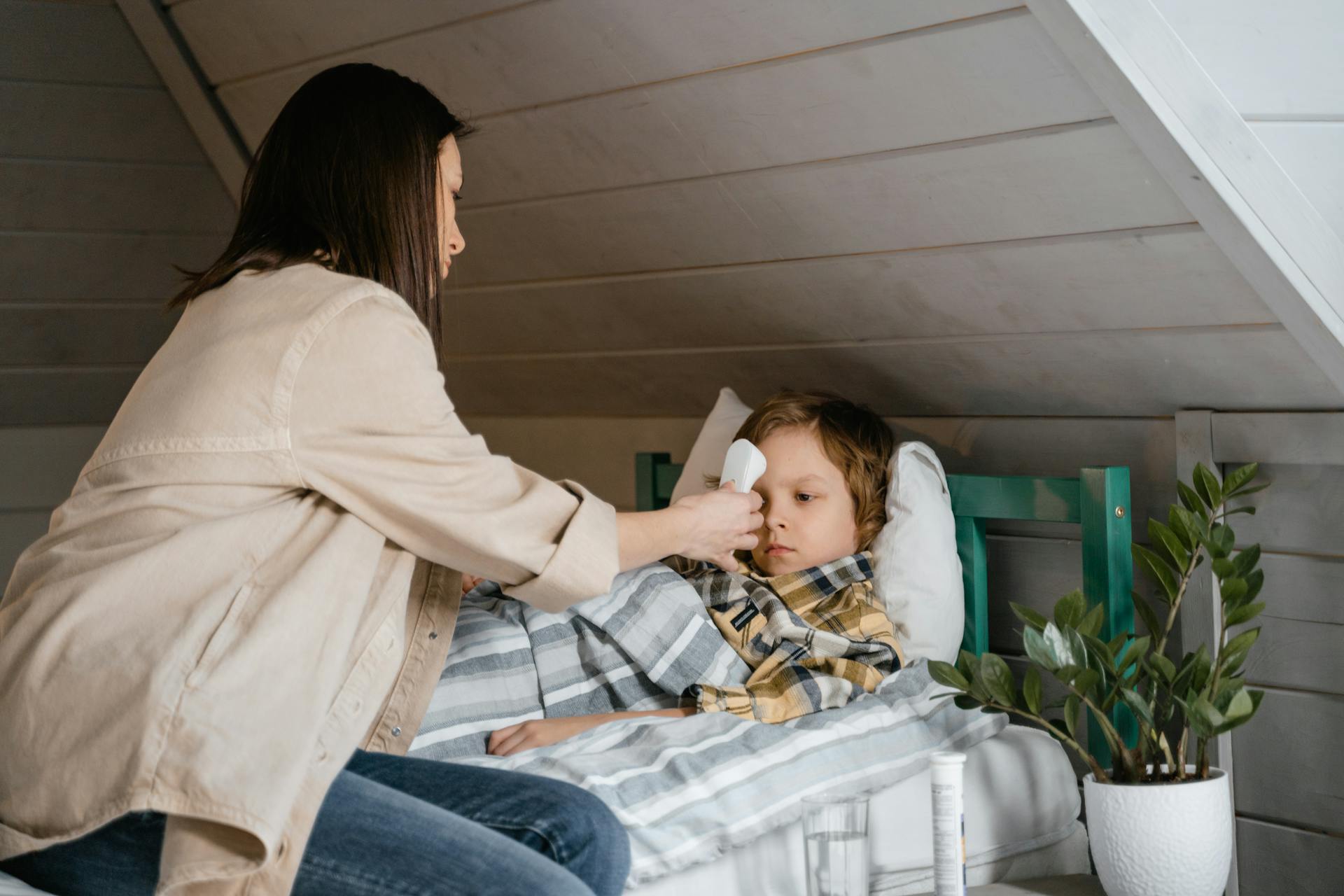
Choosing “first-day home care” is an excellent approach to ensuring that your loved one receives individualized care in the comfort of their own home. Home health care has numerous advantages, including maintaining independence, accessing professional treatment, and providing patients with a sense of security and familiarity. Whether you work with “First Day Homecare LLC,” “Home First Homecare,” or any other reputable service, the goal is to offer compassionate care that is tailored to each patient’s specific needs.
This post will provide ten useful recommendations for making the most of your “first-day home health” care adventure. By being proactive and knowledgeable, you may improve the quality of care for your loved one while also creating a great experience with “care first home health care” services. From clear communication with caregivers to creating a comfortable environment for the patient, these recommendations will help you every step of the way. Whether it is “new day homecare” or a long-term contract, these insights will help optimize home healthcare benefits for all parties involved.
Tips 1: Establish clear communication.
Clear communication is vital while working with “First Day Homecare.” Whether you use “First Day Homecare LLC,” “Care First Home Health Care,” or any other homecare service, establishing open lines of dialog between the patient, family, and caregivers ensures that everyone is on the same page and providing the best possible care.
To begin, make a list of contact information for emergencies. This should include information about caregivers, family members, the patient’s doctor, and any other essential healthcare providers. Keeping this list handy is essential, especially in unexpected situations, since it can help avoid confusion and save time.
Regular communication between caregivers and family members is also necessary. Routine check-ins let everyone stay informed about changes in the patient’s status, any concerns, and scheduled appointments. A collaborative approach including “Home First Homecare” experts and family members ensures the patient receives care that is tailored to their specific needs.
Effective communication promotes trust, gives families peace of mind, and enables “First Day Home Health” caregivers to provide the greatest quality of specialized care. It’s an important part of ensuring your loved one receives the quality care they deserve.

Tips 2: Set clear goals for care.
Setting specific goals is essential for getting the most out of “First Day Homecare.” Whether you’re working with “First Day Homecare LLC,” “Care First Home Health Care,” or another provider like “Quality First Homecare,” it’s critical to discuss both short-term and long-term health objectives with the care team.
Begin by talking about the patient’s individual needs and preferences with the caregivers. Short-term aims could include increasing mobility, managing pain, or ensuring correct medication administration, whereas long-term goals could include improving quality of life, retaining independence, or avoiding hospital readmissions. These objectives help guide the care team, which includes specialists from “Home First Homecare” and others, in developing a plan that is tailored to the patient’s specific needs.
A clear care plan ensures that everyone involved, from caregivers to family members, understands the goals and how to achieve them. This collaborative approach enables “First Day Home Health” providers to offer the best possible care, concentrating on what is most important to the patient. Setting well-defined goals allows you to track progress, keep the patient engaged, and adjust the care plan as needed, resulting in the greatest possible care experience.
Tip 3: Create a comfortable environment.
Creating a pleasant setting is essential for getting the most out of “First Day Homecare.” Whether you deal with “First Day Homecare LLC,” “Care First Home Health Care,” or another provider such as “Quality First Homecare,” preparing the home is critical to the patient’s well-being and rehabilitation.
Begin by making your home safe and accessible for caregiving. This involves reducing trip hazards, providing grab bars in toilets, and ensuring that commonly used objects are easily accessible. Simple changes can help to minimize accidents and establish a safe environment for “First Day Home Health” caregivers to assist.
Comfort also plays an important part in recuperation. Set up the patient’s room to be comfortable and pleasant, with their favorite personal belongings around. Good lighting, comfy furniture, and a clean environment promote physical and mental well-being. Working with “Home First Homecare” professionals allows you to create an atmosphere that matches the patient’s care needs while also instilling a sense of security and familiarity.
By preparing the home for caregiving, you provide the groundwork for effective care and a positive experience with “First Day Homecare” and other reputable home health care providers.
Tip 4: Keep a record of medication and treatments.
When dealing with “First Day Homecare Home Health Care,” keeping a complete record of drugs and treatments is critical for providing successful care. Whether you use “First Day Homecare LLC,” “Care First Home Health Care,” or “Home First Homecare,” recording medications, doses, and treatment regimens prevents confusion and keeps everyone on the same page.
Make a list of all the medications the patient is taking, including their dosage, frequency, and any special instructions. A health notebook can be a beneficial tool for keeping track of daily drugs, therapies, and changes in the patient’s condition. This record enables “First Day Home Health” caregivers and family members to better monitor the patient’s health, identify any adverse effects, and change the care plan as needed.
Having an organized record also facilitates communication with healthcare practitioners. It guarantees that “Care First Home Care” professionals have the necessary information to offer the finest care. By maintaining organized and recording medications and treatments, you can assist in protecting your loved one’s health and safety, maximizing your collaboration with “First Day Homecare” and other high-quality home care services.

Tip 5: Be actively involved in care.
Being actively involved in “First Day Homecare” can significantly improve the level of care your loved one receives. Whether you work with “First Day Homecare LLC,” “Care First Home Health Care,” or another service like “Quality First Homecare,” family participation is critical to improving patient results and comfort.
Participating in care activities, such as assisting with daily chores or staying up to date on the patient’s development, creates a supportive environment. Regular updates and open communication with “First Day Home Health” caregivers keep you informed of any changes in your loved one’s condition and allow you to contribute to choices concerning their care.
Family involvement not only helps caregivers comprehend the patient’s choices, but it also provides emotional support to the patient. Knowing that loved ones are actively involved in their care improves morale and overall well-being. Working together with “Care First Home Care” professionals enables you to develop a collaborative care approach that prioritizes the patient’s requirements while providing compassionate and effective support.
Your active engagement in “First Day Homecare” services can result in improved health outcomes, more comfort, and a more positive home care experience for your loved one.
Tip 6: Encourage independence where possible.
Encouraging independence is a primary goal of “First Day Homecare.” Whether you deal with “First Day Homecare LLC,” “Care First Home Health Care,” or another provider such as “Quality First Homecare,” assisting your loved one in maintaining their independence is critical to their well-being and self-esteem.
Encourage the patient to accomplish activities on their own whenever possible, such as dressing, eating, or performing light exercises. Even simple actions can make them feel more in control and aid in their overall rehabilitation. Caregivers from “First Day Home Health” and “Home First Homecare” play an important role in aiding patients while respecting their independence. Encourage independence where possible.
Encouraging independence is a primary goal of “First Day Homecare.” Whether you deal with “First Day Homecare LLC,” “Care First Home Health Care,” or another provider such as “Quality First Homecare,” assisting your loved one in maintaining their independence is critical to their well-being and self-esteem.
Encourage the patient to accomplish activities on their own whenever possible, such as dressing, eating, or performing light exercises. Even simple actions can make them feel more in control and aid in their overall rehabilitation. Caregivers from “First Day Home Health” and “Home First Homecare” play an important role in aiding patients while respecting their independence.

Tip 7: Promote healthy routines.
Promoting healthy routines is an important aspect of “First Day Homecare.” Whether you’re working with “First Day Homecare LLC,” “Care First Home Health Care,” or another reputable provider like “Quality First Homecare,” a healthy diet, frequent physical activity, and mental health activities can dramatically improve the patient’s quality of life.
A nutritious diet boosts the patient’s vitality and overall health. Caregivers from “First Day Home Health” can assist with preparing meals that suit dietary requirements while also appealing to personal tastes. Physical activity is another important aspect of a healthy lifestyle. Simple workouts designed for the patient’s ability can increase mobility, strength, and emotional well-being. With the help of specialists like those at “Home First Homecare,” patients can safely participate in activities that keep them active and independent.
Mental health is also vital, so hobbies such as puzzles, reading, and social engagement can help keep the mind sharp and spirits high. Collaborate with caregivers to build and maintain these healthy routines, developing a structured yet adaptable strategy that prioritizes the patient’s needs and preferences. By encouraging a healthy lifestyle with “First Day Homecare,” your loved one can enjoy the best of both health and happiness.
Tip 8: Address Emotional and Mental Health Needs
Addressing emotional and mental health needs is a critical aspect of “First Day Homecare.” Whether you’re working with “First Day Homecare LLC,” “Care First Home Health Care,” or another provider like “Quality First Homecare,” it’s essential to recognize the profound impact that emotional support can have on a patient’s overall well-being.
Emotional well-being is just as important as physical health. Patients often face feelings of loneliness, anxiety, or depression, especially when recovering at home. Caregivers from “First Day Home Health” play a vital role in offering companionship and understanding. They can engage patients in meaningful conversations, listen to their concerns, and provide reassurance, which fosters a sense of security and belonging.
Incorporating activities that boost mood, such as games, arts and crafts, or even gentle exercise, can also help lift spirits. Caregivers can facilitate these activities, ensuring that they are both enjoyable and appropriate for the patient’s abilities. By working closely with “Home First Homecare” professionals, you can create an environment that nurtures emotional and mental health alongside physical recovery. This holistic approach not only enhances the patient’s quality of life but also strengthens the bond between caregivers and those they care for, making every day more fulfilling and brighter.
Tip 9: Monitor and adjust the care plan.
Monitoring and changing the care plan is critical for guaranteeing the effectiveness of “First Day Homecare.” Working with services such as “First Day Homecare LLC,” “Care First Home Health Care,” or “Quality First Homecare” enables families to adjust care to their loved ones’ changing requirements.
Regular assessments of the care plan are necessary. Schedule regular check-ins with caregivers from “First Day Home Health” to discuss the patient’s progress and any potential issues. This proactive strategy guarantees that care initiatives are both relevant and successful. For example, if a patient’s condition improves, modifications may be made to boost independence or introduce new activities.
Communication is essential. If there are any changes in the patient’s condition—such as improved movement, new symptoms, or mood shifts—it is critical to notify the caregiver immediately. This allows “Home First Homecare” personnel to change their ways and deliver the best appropriate support.
Working closely with caregivers and keeping involved in the care process can help you achieve better health results. Regularly monitoring and changing the care plan ensures that your loved one receives the best possible care through “First Day Homecare” and other comparable services, resulting in a healthier, happier life at home.

Tip 10: Maintain open communication with the Home Health Agency.
Maintaining open communication with your home health service is critical to providing effective “First Day Homecare.” Whether you’re working with “First Day Homecare LLC,” “Care First Home Health Care,” or another provider like “Quality First Homecare,” staying in touch with your agency is critical for dealing with any extra demands or services that may emerge.
Establishing a solid line of communication enables families to express concerns, ask questions, and address any changes in their loved one’s health. If there are any concerns about the quality of care, they should be reported to the agency right away. This could range from schedule difficulties to caregiver performance. Agencies like “First Day Home Health” and “Home First Homecare” value feedback since it helps them maintain high standards and deliver the best possible care.
Furthermore, if your loved one’s health changes—whether positive or negative—informing the agency might result in prompt alterations to the care plan. Open communication develops a collaborative environment, ensuring that your loved one receives specialized care based on their changing needs. Staying in touch with your home health agency can help create a supportive care environment that promotes well-being and peace of mind.
Conclusion
Making the most of “First Day Homecare” can significantly improve your loved one’s health and well-being. Whether you’re dealing with “First Day Homecare LLC,” “Care First Home Health Care,” or another service like “Quality First Homecare,” it’s critical to be proactive, engaged, and communicative throughout the caregiving process.
Homecare offers customized care, and it works best when families actively participate in creating a comfortable atmosphere, establishing healthy routines, and keeping open communication with caregivers and the agency. Regular evaluations and revisions to the care plan, as well as emotional support and clear communication, can help ensure that your loved one receives high-quality, compassionate care that meets their specific needs.
If you are considering home health care services or would like more information, please do not hesitate to contact us. Contact a local home healthcare organization, such as “First Day Home Health” or “Home First Homecare,” to find out how they can help you with quality care that will allow your loved one to thrive peacefully at home. Stay active, ask questions, and collaborate for the best results—because your loved one deserves nothing but the best.

Leave a Reply